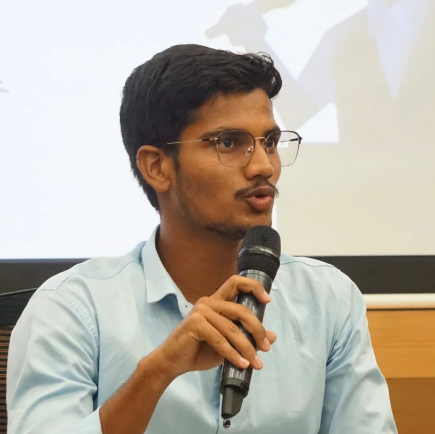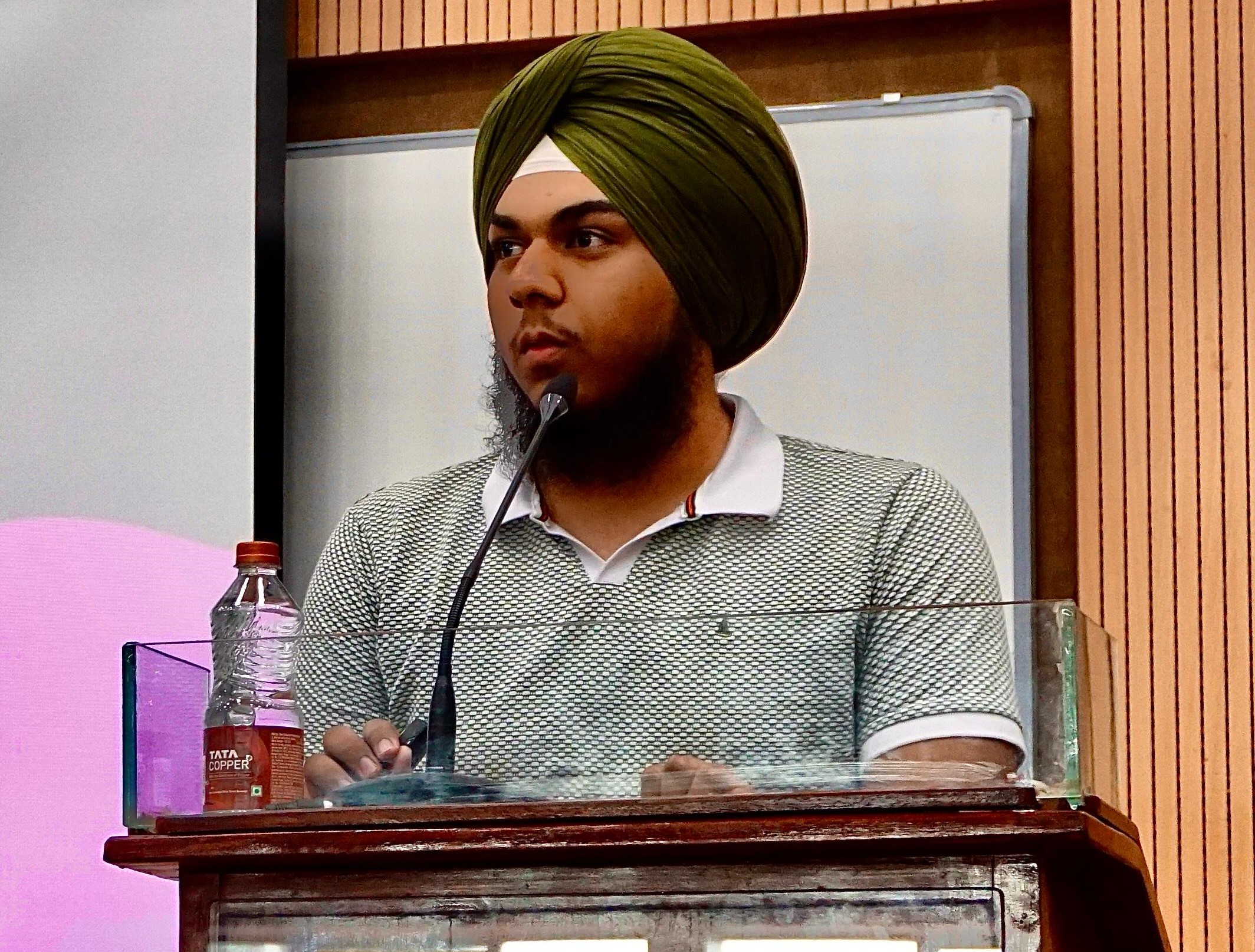
Under the series "Secretary Spotlight", this post covers the accomplishments, challenges faced, steps taken and the overall efforts made by the General Secretary of Mess Affairs. This interview raises crucial question on food wastage and introduction of eco-friendly practices adopted and also unravels the actions taken upon the student's feedback forms.
1. You mentioned in your manifesto that you would ensure diverse dietary preferences are catered to. How have you implemented this, and what progress has been made?
We have consistently floated a recurring feedback mechanism to understand what students prefer to eat. Based on the inputs we received, we have made concerted efforts to reflect those preferences in the menu as much as possible.
One specific step we have taken is ensuring that Jain food is prepared as per its unique dietary requirements, demonstrating our commitment to inclusivity. At the same time, managing the preferences of 1,300 students with diverse tastes is a challenging task. However, we strive to balance these varied needs when designing the menu to ensure that every type of food preference is catered to.
While there is always room for improvement, I am proud of the progress we’ve made and remain committed to refining this process to meet the expectations of our student community.
2. Hygiene and cleanliness were highlighted in your manifesto. What specific steps have you taken to maintain high sanitation standards in the kitchen and dining areas?
We have prioritized hygiene and cleanliness in the mess by conducting regular inspections to ensure that only appropriate and high-quality ingredients are used, while avoiding items that should not be part of meal preparation.
To maintain oversight of daily cleaning practices, we established a WhatsApp group where the mess vendor shares photos of cleaning activities each day. This allows us to monitor the standards consistently. While we’ve made progress, there’s still significant room for improvement in this area, and we are committed to making further strides with the time we have left in our tenure.
3. Reducing food waste and introducing eco-friendly practices were part of your manifesto. What progress have you made in achieving these goals?
This is still an ongoing process, and we are doing our best to minimize food waste. To address this, we introduced an unlimited serving system for most items, allowing students to take only what they wish to eat, which helps reduce leftovers.
While we are actively working to implement more measures, we are open to suggestions from students through email and the website.
4. You emphasized organizing themed meals and festive dinners to celebrate campus diversity. How successful have these events been, and what feedback have you received?
So far, we have organized 7 special meals, and we plan to organize 4 more this semester. The feedback from students has generally been positive, though occasionally, we receive constructive criticism on specific dishes.
This helps us understand the strengths of the mess cooks and the preferences of the students. We use this valuable insight to continuously refine and develop the special meals, ensuring they better meet the expectations of the campus community.
5. How do you address and act upon feedback received from students?
We take a personalized approach to addressing each student’s concerns. Feedback is collected through various channels such as our website, Google Forms, emails, and WhatsApp. Each piece of feedback is carefully reviewed, and we engage in discussions to identify effective solutions. While resolving some issues may take time, we ensure that every concern is thoroughly considered and addressed.
We also respond directly to students through WhatsApp, providing them with specific updates on how we can resolve the problems they’ve raised. It helps us continuously improve the mess and canteen experience.
6. Can you share an example of a challenge you faced while managing mess operations and how you overcame it?
One of the key challenges I faced was ensuring curd availability every day in the mess, as it was previously only available two days a week. It took about a month of effort to successfully implement this change in the last semester.
Another challenge has been the introduction of QR scanners in the mess to track attendance. While the system is not yet operational, it is expected to be fully implemented this semester. The QR scanners will help streamline the attendance tracking process and provide valuable data that can be used to enhance future meal planning and overall mess operations.
To check out General Secretary Mess Affairs(2024-25) Manifesto, click here!
The views presented above are the blogger’s own and are not in any manner representative of the views of Drishti or IIT Dharwad in general.




 Never miss a story from us, follow us on our handles!
Never miss a story from us, follow us on our handles!
Comments